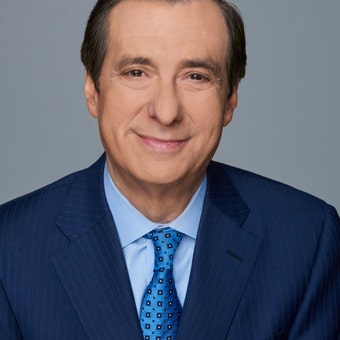Biden takes a few questions from select reporters
'Special Report' anchor Bret Baier weighs in on 'America's Newsroom' about reporters being criticized for going easy on President-elect Joe Biden.
There was a moment, when Joe Biden was taking questions from the press, that he paused in an effort to avoid generating scorching headlines.
“How can I say this tactfully?” he asked.
That’s a striking contrast with the incumbent president, who does not put tact high on his list of public speaking virtues.
There is plenty to get used to with a new president-elect, and that includes quirks, tone and verbal tics, all part of how he chooses to communicate.
THE ENDLESS ELECTION: WHY BOTH SIDES KEEP PUNCHING BACK
Ronald Reagan projected the confidence of a seasoned actor. George H.W. Bush had a tendency to read his talking points, such as “Message: I care.” Bill Clinton rambled on, sometimes eloquently and sometimes endlessly. George W. Bush favored cowboy lingo such as “dead or alive.” Barack Obama spoke in perfect paragraphs but could sound like a droning law professor. Donald Trump ushered in superlatives (“nobody has ever seen--”), size (“huuge”), and slashing street insults (“Crooked Hillary,” “Sleepy Joe,” “fake news”).
Biden’s style is informal, full of “folks” and “here’s the deal” and “malarkey.” But he can also be long-winded in Senate gasbag fashion, and regularly trips over his own words.
What he’s doing now is trying to lower the temperature at a time when Trump is on the attack, complaining about a stolen election and hurling unproven allegations of widespread fraud.
Most of the reporters’ questions at Tuesday’s Delaware event were some version of why-is-Trump-screwing-you-over, as opposed to pressing him on his plans and priorities:
“How do you expect to be able to work with Republicans when so many have thus far refused to even acknowledge your victory?”
SUBSCRIBE TO HOWIE'S MEDIA BUZZMETER PODCAST, A RIFF OF THE DAY'S HOTTEST STORIES
“Have you tried to reach out at all? To the president?”
“How will you move ahead if the president continues to refuse to concede?”
“What do you say to the Americans that are anxious over the fact that President Trump has yet to concede and what that might mean for the country?”
It was that last question that produced Biden’s strongest answer, but one that he quickly hedged.
“Well, I just think it’s an embarrassment, quite frankly. The only thing that...how can I say this tactfully?...I think it will not help the president’s legacy.”
Even when the reporters asked about the GSA blocking Biden aides from federal buildings, and Mike Pompeo saying we are heading toward a “second Trump administration,” Biden brushed it off, saying his transition is going just fine.
This is an outgrowth of the strategy that Biden followed during the campaign, where he took his shots at the president but resisted being drawn into tit-for-tat exchanges and Twitter spats.
Some Democrats openly assailed that approach, believing that Biden had to respond to each punch with a counterpunch, and hit the trail more as Trump was holding several rallies a day. But the Biden camp was content to let the president dominate the news, believing that made the election into more of a referendum.
We’re so accustomed to such domination that it seems strange that Trump hasn’t spoken in public for a week, emerging yesterday only to silently lay a Veterans Day wreath at Arlington. He’s been active on Twitter (“BALLOT COUNTING ABUSE!”) but not in person.
All this has produced a surreal atmosphere in which world leaders are calling to congratulate Biden but Trump insists the election is not over. A new Reuters/Ipsos poll says 79 percent of those surveyed recognize that Biden has won, including about six in 10 Republicans--but not most GOP elected officials.
When Biden the other day repeated his plea for Americans to wear masks, it was a pitch he’d made many times before. But his words seemed to carry more weight because of his new status.
Just as the press marveled when Jerry Ford toasted his own English muffins, Jimmy Carter carried his own bags and Reagan governed in part from his ranch, an incoming president gets to redefine our expectations.
Biden, who has constantly spoken of unity, is signalling a calmer and less frenetic approach to the Oval Office. Whether that is enough to combat Washington’s hyperpartisanship in the midst of a pandemic will soon become clear.


